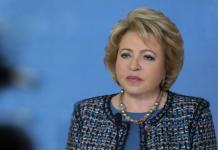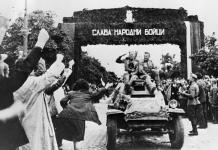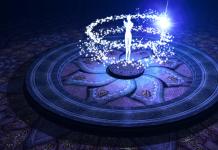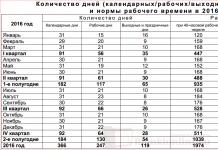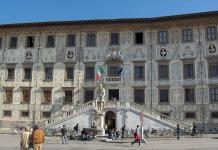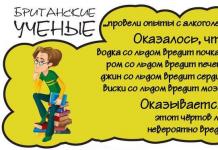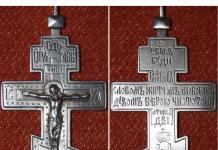Stanislav Petrov, a retired Soviet air defense officer whose death was reported this week at age 77, did not like to talk about the day he prevented a nuclear disaster.
Perhaps he was tired of giving interviews about the fateful cameo role he played in the history of the Cold War. Or maybe he was just in a bad mood when he took a call from a TIME reporter one morning in the summer of 2015. But whatever the reason, at the first mention of his heroism Petrov flared up - talking on the phone from his home in the suburbs of Moscow, he did not hide his irritation. “Nonsense,” he muttered into the phone in Russian. - Nonsense! I was just doing my job."
He served as an officer at the command post of the Soviet missile warning system, codenamed "Oko". The system was designed to detect the launch of an American missile with the aim of delivering a nuclear strike. The command post was located in a huge underground bunker in the secret city of Serpukhov-15, located south of Moscow. Petrov once participated in the design and construction of this facility. On the night of September 26, 1983, he was on duty when sirens started blaring in the bunker.
It was a tense moment in Cold War history. Just three weeks earlier, a Soviet plane had mistakenly shot down a civilian airliner over the Sea of Japan, killing all 269 people on board—including 62 Americans, one of whom was a congressman. Six months earlier, President Ronald Reagan had announced plans to create a European missile defense system, which the Kremlin considered a serious threat to its nuclear arsenal. Yuri Andropov, the KGB chairman who had become leader of the Soviet Union a year earlier, was known for his paranoia—he feared an American preemptive strike would destroy Soviet missile silos.
Context
The unsung hero Stanislav Petrov
The Guardian 09.19.2017The man who saved the world
Politiken 09/19/2017Is nuclear disarmament good for Putin?
Svenska Dagbladet 08/30/2017Therefore, both sides were on high alert when the Oko satellites detected the launch of an American ballistic missile, followed by four more in a row. “We created this system to eliminate the possibility of false alarms,” Petrov told TIME in 2015. “And on that day, satellites showed with the maximum degree of reliability that these missiles were already in the air.”
It was Petrov who would confirm information about the incoming attack missiles to the Soviet leadership, who would then order a retaliatory strike while the American missiles were in the air. “In my opinion, there was a 50-50 chance that the alarms were credible,” he recalls. “But I didn’t want to be responsible for starting World War III.” Therefore, he reported to his command that the alarm was false. After an investigation that lasted six months, Petrov and his colleagues discovered the cause of the false alarm: the Soviet satellites mistook the light of sunlight reflected from the clouds for the start of an American missile attack.
“Can you imagine? It’s similar to how a child plays with a mirror, sending sun “bunnies” around,” he explained. “And by chance this blinding light hit the center of the system’s optical device.” Memories of this “discovery” and thoughts about the seeming randomness of the events that brought the world to the brink of disaster haunted him until the end of his life.
But on the day he spoke with TIME, he wanted to talk not about the past, but about the present. Relations between the United States and Russia at the time of that interview had already become almost as cool as in the 1980s, when Petrov was a lieutenant colonel. In the last years of his life, he said that he saw the world sliding back into a nuclear confrontation that could lead to the death of millions of people in one hour - not intentionally or consciously, but by accident. “The slightest wrong move can have enormous consequences,” he told me. “Nothing has changed in this regard.”
Since Petrov issued this warning, the situation seems to have only gotten worse. Both the US and Russia are rapidly modernizing their nuclear weapons, creating smaller and more mobile nuclear missiles that could be more justifiable (or easier to justify) launching in wartime. US President Donald Trump has begun exchanging nuclear threats with newly nuclear-armed North Korea, promising to unleash "fire and fury" on it. The week Petrov's death became known, Russia began a series of military exercises that included a simulated nuclear strike.
The point he most wanted to make during our conversation was not the destructive power of nuclear weapons. He meant the inevitability of human errors and miscalculations in handling these weapons. Especially at a time when politicians do not talk about peace, but begin to threaten war. “That’s when things can lead to a terrible disaster,” he said. “One way or another, it still takes a person to give the order to launch one of these weapons.” But a person can make a mistake in any case.” Fortunately, Petrov did not commit it.
InoSMI materials contain assessments exclusively from foreign media and do not reflect the position of the InoSMI editorial staff.
Stanislav Petrov is a Russian officer who prevented a nuclear war.
Making a fateful decision in a matter of minutes, when the fate of Humanity depends on one word, is a real feat. This feat was accomplished by Russian officer Stanislav Petrov on the night of September 26, 1983. He was on duty in the secret part of Serpukhov-15, where observations of US actions were carried out. Suddenly information appeared on the board that America had launched several ballistic missiles, the target of which was the territory of the USSR... 
Stanislav Petrov. year 2013.
It is difficult to overestimate the responsibility that lay with the workers of the Serpukhov-15 unit in the 1980s. The likelihood of an attack on the USSR by the United States was greater than ever: President Ronald Reagan openly condemned the Soviet Union for the downing of a South Korean passenger Boeing 747 in the Far East. The heads of both states had the nuclear briefcase at the ready; the Cold War was in full swing. 
Stanislav Petrov. year 2013.
Stanislav Petrov did not tell anyone for a long time about what happened on the night of September 26, not even his own wife. Information about the feat he accomplished was made public 10 years later on the initiative of German journalists who became interested in a short article about Petrov, the man who prevented a nuclear war and saved Humanity. The note was published in a regional German newspaper, it was reported that Stanislav Petrov lives practically in poverty and needs support. 
High awards for Stanislav Petrov.
Already during the first conversation between journalists and Stanislav, it became clear that he was ready to talk about what happened, explain how he made the fateful decision, what considerations he was guided by and how he assessed his responsibility. According to Stanislav Petrov, that night he saw on the remote control a message about the launch of the first missile from the United States, and data about other missiles soon followed. At first glance, it was obvious: America had started a war against the Soviet Union. The instructions ordered Stanislav to immediately inform Andropov about this, and he was already supposed to press the button to fire the missiles in response. In essence, this meant the beginning of the Third World War, the death of millions of people, the death of hundreds of cities. 
Award ceremony.
Stanislav Petrov worked in Serpukhov-15 not just as a duty officer, but as a chief analyst. I went on duty at the control panel several times a month. All that remains is to thank fate that the incident occurred on his shift. Knowing perfectly well how the device works, and also realizing that it was pointless to start shelling from one base, he reported over the internal phone that there was a malfunction in the system and the information was false. He had no more than 10-15 minutes to make this decision. If he had not done this, the “retaliatory” missile would have flown towards the United States within half an hour. 
Stanislav Petrov during a public speech.
Stanislav could not explain his decision otherwise than by intuition. He took responsibility for what was happening, and subsequent examination indeed confirmed that he was right. The alarm was triggered because the sensors located on the satellite were illuminated by sunlight reflecting from the clouds. There was no attack, although the system indicated the highest level of danger.
Information about the incident was not disclosed for a long time, and Stanislav Petrov himself was even reprimanded for not filling out the combat log in the current situation. They did not dare to reward him for non-compliance with official instructions.
Awards found the hero much later. Petrov’s feat was discussed at the UN: in 2006, at the New York headquarters, he was presented with the award “The Man Who Prevented a Poison War,” and he was given awards in Baden-Baden and Dresden. 
Stanislav Petrov is a Soviet officer who prevented World War III.
Stanislav Petrov was never arrogant, led a quiet life, cared for his wife for many years, who suffered cancer, helped children, was never rich, but resisted cash bonuses. He left Serpukhov-15 shortly after that ill-fated night, the work was too intense and required constant 100% dedication, in the 1990s he even worked as a simple security guard at a construction site.
Stanislav’s life was cut short on May 19, 2017; he died at home in Fryazino, where he lived all his life. Not a single media outlet wrote about his death. What happened became known 4 months later, when Stanislav’s friends started calling him to congratulate him on his name day, but they heard terrible news from his son that Stanislav Petrov had died. Thus ended the life of the man who saved the whole world. 
Portrait of Stanislav Petrov in his youth.
Last updated 09/14/2018
Making choices and taking responsibility for them is never easy. Even when it comes only to your own life. It is even more difficult to choose if the fate of people depends on this decision.
Life on a string
September 26, 1983 Lieutenant Colonel Stanislav Petrov the fate of billions of human lives had to be decided. Moreover, to decide in conditions when there were only a few seconds left to think.
In the fall of 1983, the world seemed to have gone crazy. American President Ronald Reagan, obsessed with the idea of a “crusade” against the Soviet Union, brought the intensity of hysteria in the West to the limit. The incident with the South Korean Boeing, shot down in the Far East on September 1, also contributed to this.
After this, in the USA and other countries, the hottest heads in all seriousness called for “revenge” on the USSR, including with the use of nuclear weapons.
The Soviet Union was headed by that time by a seriously ill Yuri Andropov, and in general the composition of the Politburo of the CPSU Central Committee was not distinguished by youth and health. However, there was no one willing to give in to the adversary and give in to him. And in general, American pressure was perceived extremely negatively in Soviet society. It is generally difficult to scare a country that survived the Great Patriotic War.
At the same time, there was anxiety in the air. It seemed like everything was really hanging by a thin thread.
Analyst from a military dynasty
At this time, in the closed military town of Serpukhov-15, the operational duty officer of the command post of the space missile attack warning system was Lieutenant Colonel Stanislav Petrov.
In the Petrov family, three generations of men were military men, and Stanislav continued the dynasty. Having graduated from the Kiev Higher Engineering Radio Engineering School in 1972, he arrived in 1972 to serve in Serpukhov-15.
Petrov was responsible for the proper functioning of the satellites that were part of the missile attack warning system. The work is extremely difficult, calls for services occurred at night, on weekends, and on holidays - any problems had to be resolved promptly.
Lieutenant Colonel Petrov was the chief analyst at Serpukhov-15, and not a regular duty officer at the command post. However, about twice a month, analysts also took a place at the desk on duty.
And the situation when it was necessary to decide the fate of the world fell precisely on Stanislav Petrov’s watch.
A random person could not become a duty officer at such a facility. The training lasted up to two years, despite the fact that all officers already had a higher military education. Each time the duty officers received detailed instructions.
However, everyone already understood what they were responsible for. A sapper makes only one mistake—an old truth. But the sapper risks only himself, and a mistake by the person on duty at such a facility could cost the lives of hundreds of millions and billions of people.

Stanislav Petrov. year 2013. Photo: www.globallookpress.com
Phantom attack
On the night of September 26, 1983, the missile attack warning system dispassionately recorded the launch of a combat missile from one of the American bases. In the hall of the duty shift in Serpukhov-15, sirens howled. All eyes turned to Lieutenant Colonel Petrov.
He acted in strict accordance with the instructions - he checked the functioning of all systems. Everything turned out to be in good condition, and the computer persistently pointed to “two” - this is the code for the highest probability that a missile attack on the USSR is actually happening.
Moreover, the system recorded several more launches from the same missile base. According to all the computer data, the United States of America started a nuclear war against the Soviet Union.
Despite all the preparation, Stanislav Petrov himself later admitted that he was in deep shock. My legs were weak.
According to the instructions, the lieutenant colonel was then supposed to report the US attack to the head of state, Yuri Andropov. After this, the Soviet leader would have had 10-12 minutes to make a decision and give the command to retaliate. And then both countries will disappear in the flames of nuclear fires.
Moreover, Andropov’s decision would be based precisely on the military’s information, and the likelihood that a blow would be struck against the United States is extremely high.
It is unknown how a regular duty officer would have behaved, but chief analyst Petrov, who had worked with the system for many years, allowed himself not to believe it. Years later, he said that he proceeded from the postulate that a computer, by definition, is a fool. The likelihood that the system was wrong was reinforced by another purely practical consideration - it is extremely doubtful that the United States, having started a war against the USSR, would have struck from only one base. But no launches were noted from other American bases.
As a result, Petrov decided to consider the signal about a nuclear attack to be false. I informed all services about this by phone. True, in the operational duty officer’s room there was only a special connection, and Petrov sent his assistant to the next room to call on a regular phone.
He sent me simply because the lieutenant colonel’s own legs wouldn’t obey him.

Stanislav Petrov Photo: www.globallookpress.com
The Fate of Humanity and the Blank Journal
Only Stanislav Petrov knows what it was like to survive the next few tens of minutes. What if he was wrong, and nuclear charges now begin to explode in Soviet cities?
But there were no explosions. Lieutenant Colonel Petrov was not mistaken. The world, without knowing it, received the right to life from the hands of a Soviet officer.
As it turned out later, the cause of the false alarm was a flaw in the system itself, namely the illumination of the sensors of the satellite included in the system with sunlight reflected from high-altitude clouds. The deficiency was corrected, and the missile attack warning system successfully continued its operation.
And immediately after the emergency, Lieutenant Colonel Petrov received a stick from his superiors because during the inspection he did not have a combat log filled out. Petrov himself logically asked: what for? A telephone receiver in one hand, a microphone in the other, American missile launches in front of your eyes, a siren in your ears, and you need to decide the fate of humanity in a matter of seconds. And you can’t add anything later, not in real time - it’s a criminal offense.
On the other side, General Yuri Votintsev, Petrov’s boss, can also be understood - the world was brought to the brink of a nuclear disaster, there must be someone to blame? Getting to the creators of the system is not so easy, but the person on duty is right there. And even if he saved the world, he didn’t fill out the journal?!

Stanislav Petrov. 2011. Photo: www.globallookpress.com
It's just that kind of work
However, no one began to punish the lieutenant colonel for this incident. The service continued as usual. But after some time, Stanislav Petrov quit himself - he was simply tired of the irregular working hours and endless worries.
He continued to work on space systems, but as a civilian specialist.
The world learned about who he owed his life to only 10 years later. Moreover, none other than General Yuri Votintsev spoke about this in the Pravda newspaper, who mercilessly denounced Lieutenant Colonel Petrov for an unfilled journal.
From that moment on, journalists began to constantly visit the retired lieutenant colonel, who lived modestly in the Moscow region. Letters also came from ordinary people who thanked Petrov for saving the world.
In January 2006, at the UN headquarters in New York, Stanislav Petrov was presented with a special award from the international public organization “Association of World Citizens.” It is a crystal figurine of “Hand Holding the Globe” with the inscription “To the Man Who Prevented Nuclear War” engraved on it.
In February 2012, in Baden-Baden, Stanislav Petrov was awarded the German Media Prize. In February 2013, the retired lieutenant colonel became a laureate of the Dresden Prize, awarded for the prevention of armed conflicts.
Stanislav Evgrafovich Petrov himself said about himself in one of his interviews: “I’m just an ordinary officer who did his job. It’s bad when you start thinking about yourself more than you’re worth.”
It became known that Lieutenant Colonel Stanislav Petrov died back in May 2017 at the age of 77 from congestive pneumonia. His son .
Having prevented a nuclear war with the United States, he died on May 19, 2017 in the city of Fryazino, Moscow Region, at the age of 78 - this information was confirmed by his son.
“Yes, I confirm, he died back in May,” Zvezda quotes Dmitry.
Earlier, reports of the death of the legendary military man were published by foreign media. His German acquaintance Karl Schumacher called a friend on September 7 to congratulate him on his birthday and found out that Petrov had passed away. He published an obituary on his blog, after which on September 14 an article in memory of the Soviet officer was published by a regional German publication.
In 2016, Petrov, in an interview with the KP.Ru website, spoke about what happened on September 26, 1983.
“At 0.15 at the command post of the missile attack warning system (MAWS) in the secret part of Serpukhov-15, the computer reports: a ballistic missile was fired from US territory. The target is the USSR.
The machine shows that the reliability is the highest. The siren is screaming. At the top there are big red letters: “Start”. This means the rocket definitely went off. I looked down at my crew. Some even jumped up from their seats and turned to look at me. I had to check everything. It couldn’t be that this is actually a missile with warheads…” the specialist pointed out.
According to him, the first thing that seemed unreliable to Petrov was why the missiles, which in such an attack should come from different bases, came from one point.
“In a couple of minutes there will be a call via government communications. I pick up the phone and report to the person on duty: “I’m giving you false information.” He answered briefly: “Got it.” And then the system roared again. The second rocket went off. And then within three minutes three more times. The inscription “Start” changed to “Missile attack”. But visual contact specialists report that we see nothing. Over-horizontal radar is also nothing,” says the former officer.
In a conversation with Gazeta.Ru, Petrov explained that in addition to logical thinking, he was also guided by intuition.
“I was an algorithmist. I learned all the programs and knew them much better than the computer. A computer can never be smarter than the person who created it.
After all, a computer solves everything mathematically, but a person still has something unpredictable deep down in his soul. And I had this unpredictable feeling too. That’s why I allowed myself not to trust the system, because I’m a person, not a computer,” he said.
Soon the State Commission accused Petrov of not filling out the combat log.
“What should I fill in if I have a microphone in one hand and a telephone receiver in the other to report? And then it was also impossible to write - this is an addition, a criminal offense. Then I had a very hard time. They began to look for flaws, and those who want to find a flaw will definitely find it. Colonel General Yuri Votintsev then scolded me, and then, 10 years later, he apologized in print (in 1993, Gazeta.Ru),” the former military man admitted.
A subsequent investigation determined that the cause was the satellite's sensors being illuminated by sunlight reflected from high-altitude clouds. Later, changes were made to the space system to eliminate such situations.
On January 19, 2006, in New York at the Headquarters, Stanislav Petrov was presented with a special award from the international public organization “Association of World Citizens”.
It is a crystal figurine of “Hand Holding the Globe” with the inscription “To the Man Who Prevented Nuclear War” engraved on it.
On February 24, 2012, in Baden-Baden, he was awarded the German Media Prize for 2011. On February 17, 2013, Petrov became a laureate of the Dresden Prize, awarded for the prevention of armed conflicts (the monetary value of the prize is €25 thousand).
In 2014, Danish director Peter Anthony made a feature-documentary film about Petrov, “The Man Who Saved the World.” The film premiered in October 2014 at the Woodstock Film Festival, New York, where the film received two honorable mention awards: Audience Award Winner for Best Narrative Feature and James Lyons Award for Best Editing of a Narrative Feature.
1983 saw a new round of the Cold War associated with the actions of US President Ronald Reagan, who called the Soviet Union an evil empire. This spring, American aviation is conducting exercises to bomb the territory of the Kuril Islands, and a Korean Boeing, shot down on September 1, 1983 by a Soviet fighter, adds fuel to the fire. Against the background of these events, Lieutenant Colonel Stanislav Evgrafovich Petrov was faced with the question of starting a nuclear war or not.
Celestial Observation Center
The Celestial Bodies Observation Center was located 100 kilometers from Moscow, but in fact it was the Serpukhov-15 command post, which received and processed information received from the modern Oko space early warning system. When a signal about a missile attack was received from the point, a message was sent to the leadership of the USSR, which made a decision on response actions.
On the night of September 26-27, 1984, at 0.15 minutes, the missile attack warning system displayed a message on the computer that a ballistic missile was fired from US territory, targeting the USSR. At this time, Lieutenant Colonel Stanislav Petrov was on duty at the command post.
Nuclear attack
The lieutenant colonel himself recalled the events of that night as follows: “The siren is screaming like a catechumen. On the top of the wall there are big red letters: “START”. This means the rocket definitely went off. I looked down at my crew. Some even jumped up from their seats and turned to look at me. He raised his voice and ordered them to immediately take their positions. I had to check everything. It couldn’t be that this is actually a missile with warheads..."
The Eye tracked the launch from the missile exiting the silo. According to the instructions, the duty officer was only required to study the information provided by the computer and report the crisis situation to the command. Stanislav Evgrafovich doubted and could not understand why the attack was carried out by only one missile.
One step before the apocalypse
In an interview with reporters, the lieutenant colonel said: “All data from our computer is duplicated to higher authorities. But there, in surprise: why is there no confirmation from me? A couple of minutes later - a call on government communications. I pick up the phone and report to the person on duty: “I’m giving you false information.”
After Petrov hung up, the siren roared again and the system announced the launch of a second missile across the USSR. Within three minutes, the command post received a message about three more launches and the inscription “START” changed to “ROCKET ATTACK”.
Stanislav Petrov had 10-15 minutes to make a decision. While the duty officer with a nuclear suitcase ran to the leader of the USSR Andropov, the officer analyzed the situation. Specialists monitoring visual contact with missiles responded that they did not see anything; radar also confirmed the absence of a nuclear threat in the sky. The lieutenant colonel took responsibility and reported to the center that the computer system had failed.
During the investigation, it turned out that the cause of the failure was the illumination of the satellite sensors by sunlight, which was reflected from high-altitude clouds.
After the crisis
Stanislav Petrov was not given an order or another rank, and a year after the false attack, due to the state of his wife’s health, the lieutenant colonel retired. The superiors presented the officer with a complaint about an unfilled combat log. To this he replied that he physically could not make notes at the time of the attack, and making additional notes afterward is criminally prohibited and Petrov does not want to go to prison.
The identity of the hero became known in 1993, and he was named by Petrov’s then commander, General Votintsev. For saving the world, the lieutenant colonel received the Dresden Prize of 25 thousand euros in 2013 for preventing war. Previously, Petrov’s merit was noted by the Association of World Citizens, which gave him a statuette with the inscription “To the man who prevented a nuclear war.”
Stanislav Petrov died on May 19, 2017 at the age of 77 in his small apartment in the town of Fryazino near Moscow. In a recent interview, the lieutenant colonel said that he once received a $500 transfer from American actor Kevin Costner as a token of gratitude.





